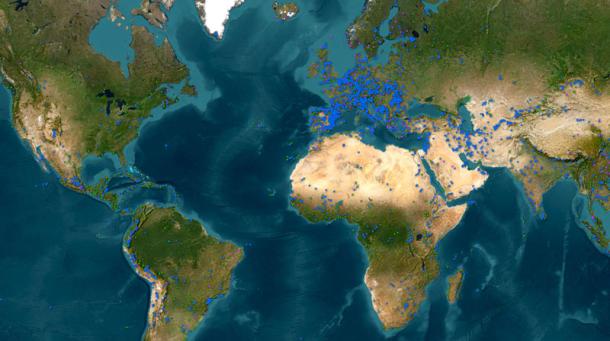中国电信原董事长常小兵案开庭 涉贿金376万元
World Heritage
Heritage is what we inherit from the past, live with in the present, and pass on to future generations. It is an irreplaceable source of life, identity and inspiration.
UNESCO’s World Heritage Convention, adopted in 1972, supports the identification, protection and preservation of cultural and natural heritage sites around the globe that hold outstanding value for all humanity.
What makes World Heritage unique is its universal significance: these sites belong to all people, regardless of the region in which they are located.

Intangible Cultural Heritage
Heritage is much more than monuments and sites; it also encompasses knowledge, skills, performances and celebrations, passed down through generations. These practices bring to life a world of knowledge – and offer valuable resources to tackle the challenges of our time.
The 2003 Convention for the Safeguarding of the Intangible Cultural Heritage celebrates this dimension of heritage, by supporting the transmission of oral traditions, performing arts, social practices, rituals, festive events, traditional crafts, knowledge and skills.

Biosphere Reserves
Biosphere Reserves are places where communities and nature coexist. Spanning land and sea, these sites serve as real-world laboratories developing local solutions for global challenges, including biodiversity loss and climate change.
Recognized by UNESCO’s Man and the Biosphere (MAB) Programme, Biosphere Reserves are home to over 250 million people around the world.

Global Geoparks
Global Geoparks are exceptional sites that showcase our planet’s geological history, while preserving this heritage for future generations. With unique topographies, these sites are home to a wide range of flora and fauna.
What truly sets Global Geoparks apart is their role as “living laboratories” where geological processes are observed, and connections to the land celebrated. They serve local communities by combining resource conservation with a sustainable approach to development.

Memory of the World Register
Documentary heritage – from clay tablets to webpages – bears witness to the richness of human history. It allows us to learn about events we did not participate in, listen to sounds from long ago, and visit places that no longer exist.
UNESCO launched the Memory of the World Programme in 1992 to preserve and promote access to humanity’s documentary heritage. The Memory of the World International Register aims to ensure that globally significant items can be accessed by current and future generations, while supporting research, education and preservation.

Creative Cities
Since 2004, the UNESCO Creative Cities Network has brought together urban centres that use imagination, culture and the arts as powerful engines for sustainable development. From music to design, literature to gastronomy, each Creative City places creative expression at the heart of its identity and growth.
Together, these cities form a vibrant international community—collaborating across borders to develop solutions to the challenges of our time.
Global Network of Learning Cities
The UNESCO Global Network of Learning Cities brings together cities that promote lifelong learning for all, sharing inspiration, expertise and best practices.
By fostering a culture of learning at the local level, this dynamic network fuels innovation and growth, helping cities everywhere become more inclusive, resilient and sustainable.
Goodwill Ambassadors, Artists for Peace and Champions
Through the dedication of its Goodwill Ambassadors, Artists for Peace and Champions, UNESCO amplifies public awareness of its mission and initiatives.
Once appointed, these distinguished individuals commit to using their talents and influence to advance UNESCO’s values and goals—whether by organizing events, leading projects, or participating in important conversations.

Prizes
Since 1951, UNESCO has been awarding prizes to recognize outstanding efforts to tackle important global issues – such as advancing gender equality, fighting poverty, ensuring quality education for all, tackling climate change, and promoting cultural diversity as a path to peace.
By honouring these achievements, UNESCO helps raise awareness of the vital work being done around the world to improve lives and build a better future for everyone.

UNESCO's Atlas of the World's Languages in Danger
UNESCO’s Atlas of the World’s Languages in Danger is intended to raise awareness about language endangerment and the need to safeguard the world’s linguistic diversity among policy-makers, speaker communities and the general public, and to be a tool to monitor the status of endangered languages and the trends in linguistic diversity at the global level.






